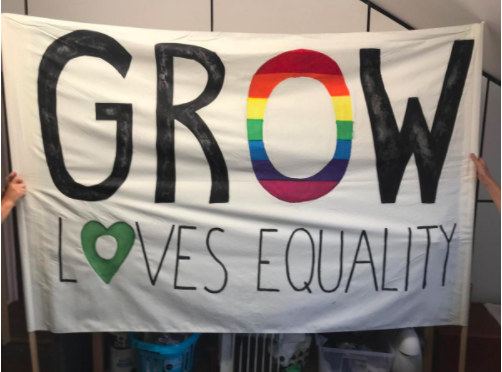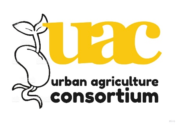With a little of our time and a small grant, UAC supported Social Farms & Gardens Northern Ireland (SF&G NI) to host and facilitate a series of workshops for local authority officers across NI to look at the issue of community access to land for food growing. Here, Miriam Turley, Growing Resilience project officer at SF&G NI tells all…
Land workshops summary
Councils all over the UK are rethinking the role of parks, especially in the context of re-evaluating our food security in the wake of Covid, Brexit and the developing climate crisis. Because of the outcomes of community planning processes councils are increasingly seeing how council assets can contribute to community identified goals. Many parks in NI have underused areas that could have value added through community management for food growing, while also saving money through reduced management costs, and attracting investment through grants and the community sector. All this can be done while achieving shared aims of improving community cohesion, health and wellbeing.
Social Farms & Gardens (SF&G) is a community development charity working to support community growing projects. We see a range of barriers to community management of public land, including limited resources, different approaches from different departments within a council, lack of awareness of the benefits of this way of working and the variety of models that can be used, and lack of support and access to resources that could help facilitate partnerships to make stuff happen on the ground. Even a motivated and skilled group can be either put off, demotivated, or eventually give up after navigating these issues. There are also policy barriers, and at times a cultural hesitancy within councils to releasing land to communities for less than market value.
The majority of the community growing projects in Northern Ireland run on Council owned land, and many of the 11 councils are already working in a generous and empowering way with communities. We know the energy is there to develop this practise in its many forms. Some barriers are within the power of each council to change, and others may require coordinated effort and appeal to outside bodies for support. In all cases cooperation, mutual support and building relationships will help us all to understand the challenges. Every situation, asset and community is different, but the more tools and resources we have at our fingertips the better chance we have of getting it right.
Social Farms & Gardens have built relationships with a number of councils over the past years, usually people working in Parks and Sustainability departments, and could see the potential benefits of convening a multi council, cross departmental conversation on how councils in NI are adapting to new models of working with communities. SF&G gained support from the Urban Agriculture Forum to run a series of 3 workshops aimed at council officers in NI. The intention of this short programme was to complement existing initiatives, like Sustainable Food Places, and the work of Development Trusts NI, Sustain, Sustainable NI and Shared Assets.
The workshops aimed to:
• Hear examples of ways councils in NI are working with communities to open up land for food growing
• Enable council staff to meet others working in the same area, and in complementary areas, to have conversations about new ways of working and shared barriers and solutions
• Get a sense of the scope of possibility for empowering a food movement in NI
• Ideally continue the conversation after the 3 sessions, and keep up the contacts, in order to lever in more support and be part of a network of practitioners.
The themes for the 3 workshops were:
- UK and NI Policy context and the benefits of Community Management of Land
- Typical barriers and solutions, with detailed case studies and facilitated problem solving.
- Action planning: what actions can engaged council staff and support organisations take to enable community management of land.
The workshops consisted of facilitated discussions on these themes. Informative presentations were also included to illustrate best practice, from a council and community perspectives, and presentations from support organisations working in this area, on current trends and what support is available.

SF&G Facilitated the sessions, and produced a report.
Outcomes of the sessions included a shared understanding of the options for mapping land for community growing, a report on the findings of the workshops, an expressed desire to collaborate in future, for example on an NI campaign to set a target level of community growing space for local authorities. To this end it was agreed that SF&G and UAC would work together in the coming months to establish a Policy Influencers Networking Group, and develop these ideas.
We hope this work will offer a useful picture of the current landscape in Northern Ireland in terms of community management of land, and provide a roadmap for progressing future collaborative action between councils and support organisations, aimed at supporting community growing to thrive in NI.

